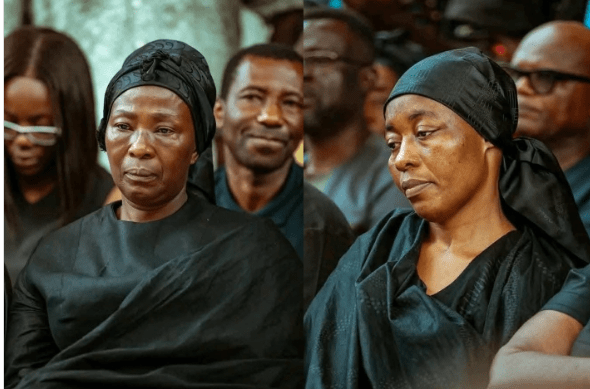A Legal Opinion on the Dispute between Akosua Serwah Fosu and the Fosu Royal Family of Nsuta & Priscilla Ofori (Odo Broni)

1. Introduction
A well-known person like Charles Kwadwo Fosu (Daddy Lumba) passing away can spark controversy on both an emotional and legal level.  Conflicting reports of marriage and fights over his fortune have surfaced since his purported death.  Important issues regarding the legality of marriage, succession rights, and property inheritance under Ghanaian law are brought up by the dispute between Akosua Serwah Fosu, who asserts that she is his legitimate wife, and the Fosu Royal Family of Nsuta, along with Priscilla Ofori (Odo Broni).  By examining the provisions of the 1992 Constitution, the Marriage Act (Cap. 127), the Intestate Succession Law, 1985 (PNDCL 111), and pertinent case law precedents, this opinion analyzes the legal features of the dispute within the framework of Ghana’s statutory and customary legal systems.
2. Legal Issues for Determination
The dispute raises three main legal questions:
1. Whether Akosua Serwah Fosu can be recognized as the lawful wife of the late Charles Kwadwo Fosu.
2. Whether Priscilla Ofori (Odo Broni) has a legitimate marital or equitable claim over the estate.
3. How the estate of the deceased should be distributed in accordance with Ghanaian succession laws.
3. Applicable Legal Framework
a. Constitutional Context
Article 22 of the 1992 Constitution of Ghana protects the rights of spouses in matters of property acquisition and inheritance. It provides that spouses shall have equal access to property jointly acquired during marriage, and Parliament shall enact laws to regulate the property rights of spouses. This article ensures gender equality and prevents discrimination in property inheritance disputes.
b. Marriage Act (Cap. 127)
Under the Marriage Act, marriage may be customary, ordinance, or Mohammedan. Each type confers specific legal consequences. The Ordinance marriage, being monogamous, automatically voids any subsequent marriage contracted under customary law while the first remains valid. Thus, if Akosua Serwah Fosu married Daddy Lumba under the Ordinance, any subsequent union between him and Priscilla Ofori would be void ab initio (from the beginning).
c. Intestate Succession Law, 1985 (PNDCL 111)
When a person dies without a valid will, PNDCL 111 governs the distribution of their estate. The law prioritizes the spouse and children of the deceased. However, its protection applies only if the claimant can prove a legally recognized marital relationship or established dependency.
4. Legal Arguments
Argument 1: Validity of Marriage
For Akosua Serwah Fosu to succeed, she must demonstrate that her marriage to the deceased was validly contracted. Evidence such as a marriage certificate under the Marriage Ordinance, photographs, witnesses, or affidavits will support her claim. If the marriage was under Ordinance, it excludes the possibility of any subsequent valid marriage. The case of Kpeglo v. Adja (1954) 14 WACA 319 affirms that where a man marries under the Ordinance, he cannot validly contract a customary marriage with another woman during the subsistence of the first.
Argument 2: Cohabitation and Presumption of Marriage
For Priscilla Ofori, even without a formal marriage certificate, long-term cohabitation may create a presumption of marriage under customary law. The court in Yaotey v. Quaye [1961] GLR 573 held that consistent cohabitation coupled with public recognition as husband and wife can establish a presumption of customary marriage. However, such a presumption can be rebutted if the deceased was legally married to another woman at the time, as monogamy under the Ordinance excludes polygamy.
Argument 3: Succession and Distribution of Estate
If Akosua Serwah Fosu proves a valid Ordinance marriage, she becomes the sole lawful spouse and qualifies as a principal beneficiary under PNDCL 111, along with the deceased’s children. The Fosu Royal Family would only be entitled to the family property portion, typically one-quarter of the residue, if any, after the spouse and children’s shares are settled. On the other hand, if the court finds that no valid marriage existed, both Akosua and Priscilla may be treated as dependents, and the estate will be distributed in accordance with Sections 4 and 5 of PNDCL 111.
5. Case Law Authorities Supporting the Opinion
- Kpeglo v. Adja (1954) 14 WACA 319 – A person married under Ordinance cannot contract a second valid marriage under customary law.
- Yaotey v. Quaye [1961] GLR 573 – Continuous cohabitation and public acknowledgment may give rise to a presumption of marriage.
- Mensah v. Mensah [1998-99] SCGLR 350 – The Supreme Court emphasized equality of property rights between spouses.
- Abebreseh v. Kaah (1976) 2 GLR 46 – Customary family cannot arbitrarily take over property that rightfully belongs to a surviving spouse.
- Boafo v. Boafo [2005-2006] SCGLR 705 – Courts must protect the rights of lawful spouses under both statutory and constitutional law.
6. Analysis
Documentary and testimonial evidence of a lawful marriage is necessary for Akosua Serwah Fosu’s claim to have legal standing.  Any claim made by Priscilla Ofori would be nullified if it were confirmed since, according to the Ordinance framework, her putative connection would not be legally recognized.  However, the court may find both women dependant using equitable principles under Section 4(2) of PNDCL 111 to guarantee fairness if Akosua’s proof is insufficient or if she cohabitated without registering.  Given that self-acquired land is not typically family property, the Royal Family’s claim to oversee or own Lumba’s private estate is not well supported by the law.  Every individual is entitled to personal property ownership under Article 18(1) of the Constitution.The ongoing dispute also highlights a crucial social and moral lesson. Under both law and ethics, it is improper for any person to cling to a deceased individual’s estate on the mere basis of emotional attachment or cohabitation without lawful marriage. The law seeks to protect legitimate spouses and dependents, not opportunistic claims. You cannot stick to someone’s husband all in the name of acquiring property when he passes on. Ghanaian jurisprudence respects lawful union, and property inheritance must always flow from legally recognized marital rights, not from convenience or posthumous ambition.
In re Estate of Larbi (Decd) [1989-90] 2 GLR 460, the court determined that a lady who simply lived with the deceased without proof of marriage under either ordinance or customary law had no claim to the estate. This case serves as a good example of the idea. Â In a similar vein, the Supreme Court stressed in Boafo v. Boafo [2005-2006] SCGLR 705 that the courts must defend the rights of legitimate spouses, not those whose unions were never recognized by the law. Â These cases show that legal recognition cannot be replaced by emotional attachment. Â Justice is protected by the law through evidence, not compassion.
7. Opinion and Conclusion
Based on the authorities and statutory interpretation:
– If Akosua Serwah Fosu’s marriage was under the Ordinance, she remains the sole lawful wife and entitled to the estate with the deceased’s children under PNDCL 111.
– If her marriage was only customary, and Priscilla can establish a later valid customary marriage, both could share spousal benefits proportionally.
– The Fosu Royal Family has no legal right to confiscate or manage the estate, except to identify ancestral property belonging to the stool or family.
This case teaches a broader moral lesson beyond the courtroom. Marriage, property, and inheritance rights are sacred and should never be manipulated for selfish gain. Women and men alike must insist on proper marriage registration to avoid confusion and social embarrassment. No amount of cohabitation or public perception can replace a valid legal marriage, and no one should claim the benefits of a lawful spouse without proof.
As reaffirmed in Kpeglo v. Adja (1954) 14 WACA 319, once a person contracts an ordinance marriage, no other marriage can lawfully exist during its subsistence. Therefore, attempts by secondary partners to claim estate rights are contrary to both statutory and moral law. The guiding philosophy of PNDCL 111 and Article 22 of the 1992 Constitution is fairness, equality, and lawful succession, not opportunism.
8. Recommendations
- The plaintiff should seek Letters of Administration from the Probate and Administration Division of the High Court, Accra, to secure temporary control over the estate.
- The court should issue an injunction restraining the Royal Family and Priscilla Ofori from interfering with the estate until final determination.
- The Ministry of Justice should intensify public education on marriage registration to prevent future disputes.
- Academic institutions should use this case as a teaching model on succession law, spousal rights, and property justice in Ghana.
 Social Advocates
MPhil Student, from the Centre of Human Right, Conflict and Peace Studies (UEW)
ORTSIN MESSIAH
0594469097 Â Â Â Â Â Â Â Â Â Â Â Â Â Â Â Â
           &
ELIZABETH TETTEH, SOCIAL STUDIES (UEW).





